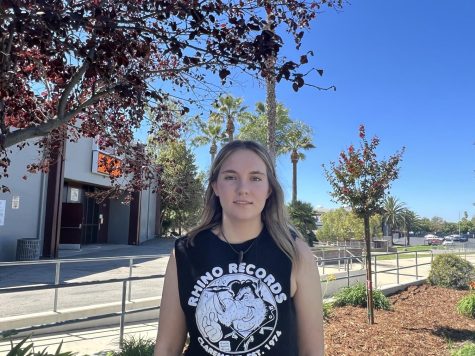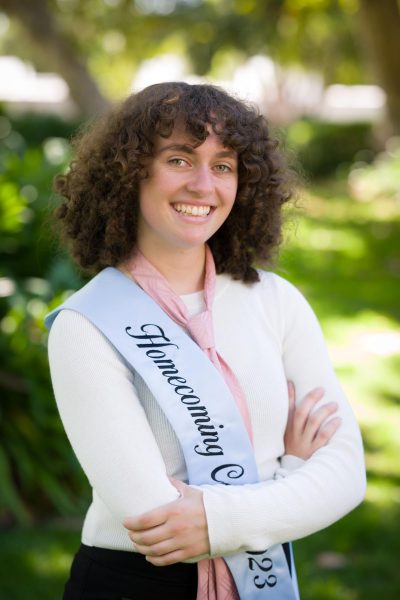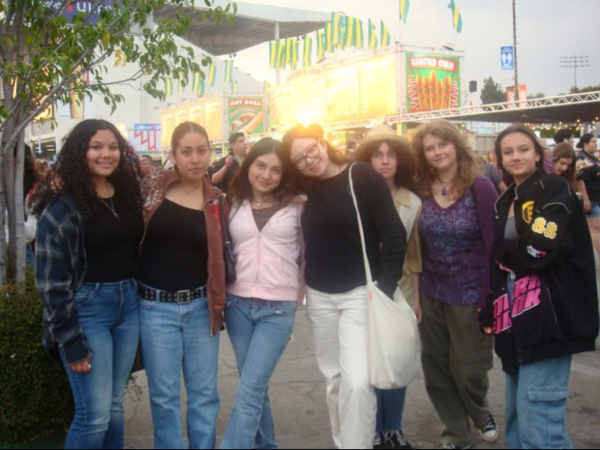“Updated” SRO policies are a slap in the face to students
Personal Editorial
It was an April afternoon during my Junior year at Claremont High
School. As I walked from lunch to my Creative Writing class, I passed by CUSD’s current School Resource officer, Brittany Sornborger. I did my best to ignore her, but she could not seem to do the same for me. About a minute after I passed Officer Sornborger, she came up to me and pulled me aside. Officer Sornborger, an armed Police officer, informed me that the shorts I was wearing were too short and that I would have to come to the office with her to change. During this interaction, she also remarked that I looked like the girls she sees on Indian Hill by the Motels. It didn’t take longer than a few minutes for me to process what she had said to me, but I’ve lived in Claremont for most of my life. I know who “the girls on Indian Hill by the motels” are. I knew she was in the wrong, but I still felt powerless and sexualized.
What happened to me is not unusual, but it is evident that bullying tactics by School Resource Officers are far more often used against students of color. This starts as young as middle school if not younger. An anonymous student spoke of an experience they had at El Roble. A different officer brought a drug-sniffing dog to this person’s classroom, the dog falsely alerted the officer of their backpack. The officer took the student’s backpack and made the student follow her to the office through a route that passed in front of other students.
“It was obviously an embarrassing situation. People asked me after if I was getting arrested or what I did to warrant the police searching me,” the student said.
As the officer searched through the student’s personal belongings, the assistant principal felt inclined to question the student about their race. The student was not offered a representative nor allowed to call their parents. When nothing illegal was found in the student’s belongings, neither El Roble nor the Claremont Police Department ever apologized to the student.
“It was a humiliating experience which made me feel powerless and possibly changed the way in which people saw me,” the student said.
CUSD and the Claremont Police Department have paraded Sornborger and past SROs as the cream of the crop, the good apples, the ones you should be comfortable with around your children; and yet, several of them have used their positions of power to harass children. The issue at hand is not with either Sornborger or any other SRO as individuals, but rather with the SRO position, which encourages those who hold it to wield an unruly amount of power over children.
Last year, the year Officer Sornborger dress coded me, should have been the last that CUSD had an SRO. The position has always compromised the well-being of marginalized students, but in 2020 several student activist groups formed the Claremont Student Equity Coalition which organized a movement to end the program. As a sophomore, I was involved with the CSEC and saw personally how my peers exhausted themselves trying to get their voices heard. We spoke at school board meetings, police commission meetings, and later city council meetings. We talked about how police are ineffective at providing good responses to mental health crisis, about how nationwide data does not show police presence having an impact on the amount of violence that happens in schools (this was before Uvalde), about how police in schools contribute heavily to the school-to-prison pipeline, about how Claremont’s SRO program was spearheaded by overt racists, about how it is not appropriate for anyone to have a gun on a school campus in a non-emergency or for a police officer to be involved in routine disciplinary actions, about how students who are arrested, taken into custody during a mental health emergency, or otherwise taken anywhere by the SRO are often humiliatingly paraded in front of other students, and about how the SRO program prioritizes white comfort over BIPOC safety. Several students spoke up about their own experiences or experiences they had witnessed of the SRO creating a hostile environment. It was obvious from these stories that CUSD’s SRO was disproportionately targeting students of color.
By the following summer, it looked like our work was paying off. In July, after a year of tireless work by students, the Claremont City council unanimously approved a recommendation made by the Police Commission’s SRO ad-hoc committee to overhaul CUSD’s safety policies.
“Effective June 30, 2022, provided that funding is available to ensure no loss of coverage, staff or police officer positions, that the city re-designate the school resource officer to a lateral designation within the police department with a secondary assignment to the Claremont Unified School District to respond to student/school related calls, pending the completion of the redesign of school safety and well being programs by the representative working group,” the recommendation read.
It looked like the CSEC had won, and most of the students in the coalition were exhausted. In addition, most of the CSEC’s leaders had just graduated from CHS’s class of 2021 and were leaving Claremont for college. Because of this, public pressure dropped. But when June 30th, 2022, the day the recommendation was supposed to take effect, came and went without so much as a public meeting, it became clear that CUSD, which has maintained its support for the SRO program despite it’s many failings being brought into the spotlight, had taken advantage of our slowed action. When a city council meeting was finally held to follow up on the issue in September, it was revealed that CUSD had attempted to make “staff-recommended modifications” to the framework they had been instructed to follow which would have amounted to changing literally nothing. In theory CUSD failed this scheme. The City council continued to support the original framework. However, the group tasked with working out the specifics of the framework refused to actually remove the SRO despite the fact that that was the one thing that was supposed to happen. They instead suggested that the SRO remain “on the perimeter” of campus. In practice, this means the SRO is practically as present as ever.
I never reported the inappropriate comment Officer Sornborger had made about me to any authority, nor have I, up until now, shared this experience with anyone other than trusted friends, largely because I was and am afraid that my preexisting anti-SRO stance would be used to invalidate me, but nonetheless, the office staff knew that Officer Sornborger had dress coded me. They saw her take me to the office. That in and of itself was an abuse of power. It also contradicts CUSD’s claim that the SRO does not intervene in non-criminal disciplinary issues. CUSD’s misrepresentation of the role the SRO plays, the complete lack of respect they have for student voices, and their general desperation to cling to the SRO above all else are racist, cowardly, and unacceptable.
Hello there! Our goal is to provide relavent, engaging journalism for readers of all ages. Your donation will support the student journalists of the Wolfpacket at Claremont High School, and will allow us to purchase equipment, print our monthly issues, and enter in journalism competitions. We appreciate your consideration!

Kat Griswold, a senior at CHS, is a reporter for The Wolfpacket this year. Her excitement for Wolfpacket stems from a number of things, such as her enjoyment...









